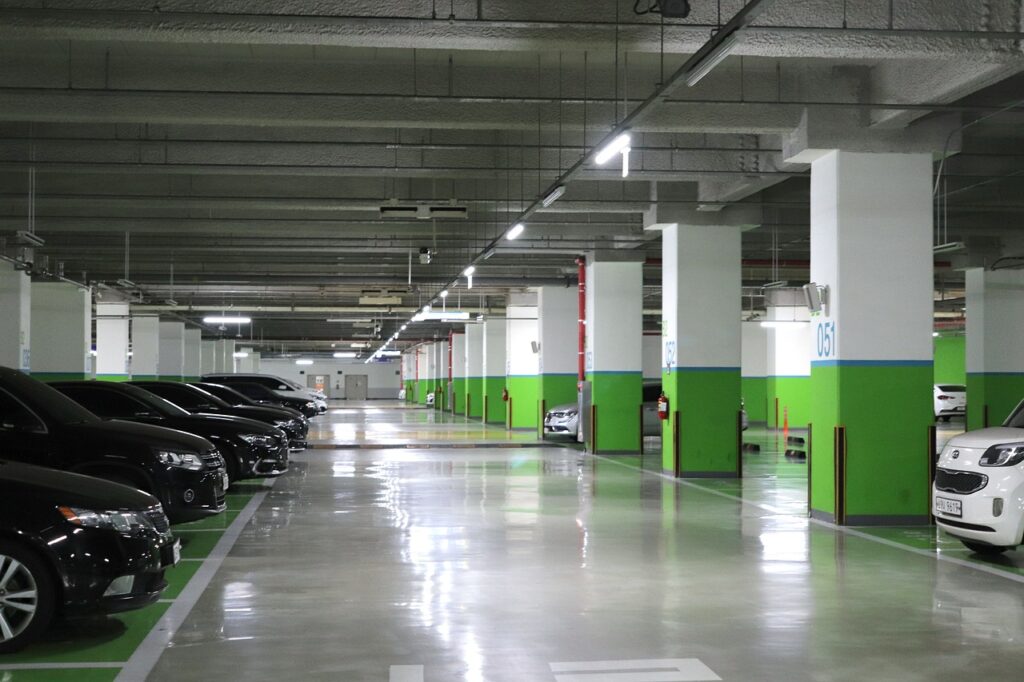Accessible parking spaces serve as lifelines for people with disabilities, providing them with the convenience and accessibility they need to navigate their daily lives. However, these designated spots are often misused or occupied by drivers without disabilities, leading to frustration and inconvenience for those who truly rely on them. By following park smart guidelines and maximizing the efficient use of handicap parking spaces, we can ensure that these vital resources are available to those who need them most.
Today we’ll explore strategies for respectful and responsible parking in handicap zones, as well as tips for navigating and managing handicap parking facilities.
Handicap Parking Etiquette
Handicap parking etiquette is essential for promoting fairness and accessibility for individuals with disabilities.
- Respect the designated spaces: Handicap parking spots are reserved for individuals with disabilities who require close proximity to entrances. Always prioritize their needs and refrain from parking in these spaces unless you have a valid handicap parking permit.
- Display your permit: If you have a handicap parking permit, make sure it is prominently displayed on your vehicle’s dashboard or rearview mirror. This helps parking enforcement officers and fellow drivers identify that you are authorized to use the designated spaces.
Efficient Use of Handicap Parking Spaces
Efficient use of handicap parking spaces is crucial for ensuring accessibility and convenience for individuals with disabilities.
- Park within the lines: When parking in a handicap space, ensure that you align your vehicle within the designated lines to maximize space availability for other drivers. Avoid encroaching on neighboring spots or obstructing access aisles.
- Utilize the loading zones: Many handicap parking spaces feature adjacent loading zones for wheelchair ramps and accessible equipment. Be mindful not to block these areas when parking to ensure that individuals with disabilities can safely enter and exit their vehicles.
Park Smart Guidelines
Park Smart guidelines provide essential principles for responsible and efficient parking practices, ensuring accessibility and convenience for all.
- Plan ahead: If you anticipate needing accessible parking, research the location in advance to identify the nearest handicap spots and accessibility features. Arriving early can also increase your chances of securing a vacant space.
- Consider alternative options: If handicap parking is unavailable or limited, explore alternative parking solutions such as drop-off zones, valet services, or accessible transportation services.
Maximizing Handicap Parking Availability
Maximizing handicap parking availability is crucial for ensuring accessibility and convenience for individuals with disabilities.
- Use designated time limits: Some handicap parking spaces may have time restrictions to accommodate a higher volume of users. Adhere to these limits to allow others the opportunity to utilize the spaces throughout the day.
- Report violations: If you encounter vehicles parked illegally in handicap spaces, notify parking enforcement authorities or property management to address the issue promptly. Reporting violations helps maintain compliance and ensures equitable access for all.

Respectful Use of Handicap Parking
Respectful use of handicap parking spaces is vital for promoting inclusivity and accessibility for individuals with disabilities.
- Prioritize accessibility: Recognize that handicap parking spaces are essential for individuals with disabilities to participate fully in society. By respecting these designated spots, you contribute to creating an inclusive and accessible environment for everyone.
- Educate others: Raise awareness about handicap parking etiquette and the importance of respecting designated spaces. Encourage friends, family members, and colleagues to park responsibly and advocate for accessibility in their communities.
Accessible Parking Tips
Accessible parking tips are essential for promoting inclusivity and convenience for individuals with disabilities.
- Look for universal symbols: Handicap parking spaces are typically marked with universal symbols such as the blue wheelchair icon. Familiarize yourself with these symbols to easily identify designated spots in parking lots and garages.
- Check signage and regulations: Be aware of any specific parking regulations or restrictions that apply to handicap spaces in different locations. Some areas may have additional requirements or permit systems for accessing accessible parking.
Handicap Parking Management
Handicap parking management plays a vital role in ensuring accessibility and compliance with regulations.
- Regular maintenance: Property owners and managers should conduct routine inspections and maintenance of handicap parking facilities to ensure compliance with accessibility standards. This includes monitoring signage, pavement markings, and accessibility features such as ramps and curb cuts.
- Enforcement measures: Implement enforcement measures to deter unauthorized use of handicap parking spaces, such as issuing fines or penalties for violations. Regular patrols and monitoring can help maintain compliance and address issues promptly.
Utilizing Handicap Parking Efficiently
Utilizing handicap parking efficiently is crucial for ensuring accessibility and convenience for individuals with disabilities.
- Coordinate with stakeholders: Collaborate with local authorities, disability advocacy groups, and community organizations to develop strategies for improving handicap parking availability and accessibility. Engaging stakeholders ensures that solutions are tailored to the needs of the community.
- Promote awareness: Raise awareness about the importance of efficient use of handicap parking spaces through educational campaigns, signage, and outreach efforts. Encourage cooperation and understanding among drivers to create a supportive environment for individuals with disabilities.
Handicap Parking Best Practices
Handicap parking best practices are essential for promoting accessibility and inclusivity for individuals with disabilities.
- Reserve spaces for those in need: Remember that handicap parking spaces are reserved for individuals with disabilities who require accessible parking options. Avoid using these spaces unless you have a valid handicap parking permit or are assisting someone with a disability.
- Be considerate of others: Practice empathy and consideration when parking in handicap zones, and be mindful of the impact your actions may have on individuals with disabilities. Your cooperation contributes to a more inclusive and supportive community for everyone.
Park Smart Strategies
Park Smart strategies involve proactive measures to optimize the use of handicap parking spaces and promote accessibility.
- Plan your route: Before heading out, plan your route and identify accessible parking options along the way. Consider factors such as proximity to your destination, availability of handicap spaces, and accessibility features.
- Allow extra time: Factor in additional time for parking when visiting locations with limited handicap parking availability. Arriving early can help you secure a suitable spot and minimize stress or inconvenience.

Making the Most of Handicap Parking Facilities
Making the most of handicap parking facilities involves understanding the importance of accessibility and adopting strategies to maximize their efficiency and availability.
- Advocate for improvements: Work with local authorities and organizations to advocate for enhancements to handicap parking facilities, such as increased signage, improved lighting, and better accessibility features. Your feedback and input can help shape policies and initiatives that benefit the community.
- Support accessibility initiatives: Participate in initiatives and campaigns aimed at promoting accessibility and inclusion in public spaces. By supporting these efforts, you contribute to creating a more equitable and accessible environment for individuals with disabilities.
Handicap Parking Space Utilization
Handicap parking space utilization is essential for ensuring equitable access and convenience for individuals with disabilities. These designated spaces are specifically designed to accommodate the unique needs of disabled drivers and passengers, providing them with closer proximity to entrances and amenities.
- Respect designated spaces: Treat handicap parking spaces with the respect they deserve and refrain from parking in these spots unless you have a valid permit. Respecting designated spaces ensures that individuals with disabilities can access essential services and amenities.
- Report violations: If you observe vehicles parked illegally in handicap spaces, report the violations to parking enforcement authorities or property management. Reporting violations helps maintain compliance and ensures that handicap parking spaces remain available for those who need them.
Parking Courteously in Handicap Spaces
Parking courteously in handicap spaces is essential for maintaining accessibility and respect for individuals with disabilities. These designated spots are specifically reserved to accommodate the unique needs of disabled drivers and passengers, providing them with close proximity to entrances and amenities.
- Follow posted regulations: Observe any posted regulations or signage related to handicap parking, including time limits, permit requirements, and accessibility guidelines. Adhering to these regulations helps maintain order and accessibility in parking facilities.
- Be considerate of others: Practice courtesy and consideration when parking in handicap spaces, and be mindful of the impact your actions may have on individuals with disabilities. Your cooperation contributes to creating a welcoming and inclusive environment for everyone.
Tips for Navigating Handicap Parking Areas
Navigating handicap parking areas requires awareness and consideration for individuals with disabilities.
- Exercise patience: Be patient and understanding when navigating handicap parking areas, especially during peak times or crowded conditions. Allow individuals with disabilities ample space and time to access parking spaces safely and comfortably.
- Stay informed: Stay informed about handicap parking regulations, accessibility features, and available resources in your area. Being knowledgeable about these aspects can help you navigate handicap parking areas more effectively and support individuals with disabilities.
Responsible Parking in Handicap Zones
Responsible parking in handicap zones is crucial for maintaining accessibility and fairness for individuals with disabilities.
- Follow guidelines: Familiarize yourself with handicap parking guidelines and regulations to ensure responsible parking in handicap zones. Adhering to these guidelines helps maintain accessibility and fairness for individuals with disabilities.
- Lead by example: Set a positive example by parking responsibly in handicap zones and encouraging others to do the same. By demonstrating respectful parking behavior, you contribute to a culture of inclusivity and accessibility in your community.
***
Efficient use of handicap parking spaces is essential for ensuring accessibility and inclusivity for individuals with disabilities. By following park smart guidelines, maximizing the efficient use of handicap parking spaces, and promoting respectful and responsible parking practices, we can create a more accessible environment for everyone.
By working together and supporting initiatives that prioritize accessibility, we can build a community where individuals with disabilities can navigate their daily lives with dignity, convenience, and independence.
Let’s park smart and make a positive difference in the lives of those who rely on accessible parking spaces!
Need more information on disabled parking in the US? From handicap parking for rental cars in Rhode Island to handicap parking laws for private property owners in Georgia, we offer a useful bank of detailed topics on the Dr Handicap blog. Check it out today!
Featured image by Pok Rie on Pexels.com

